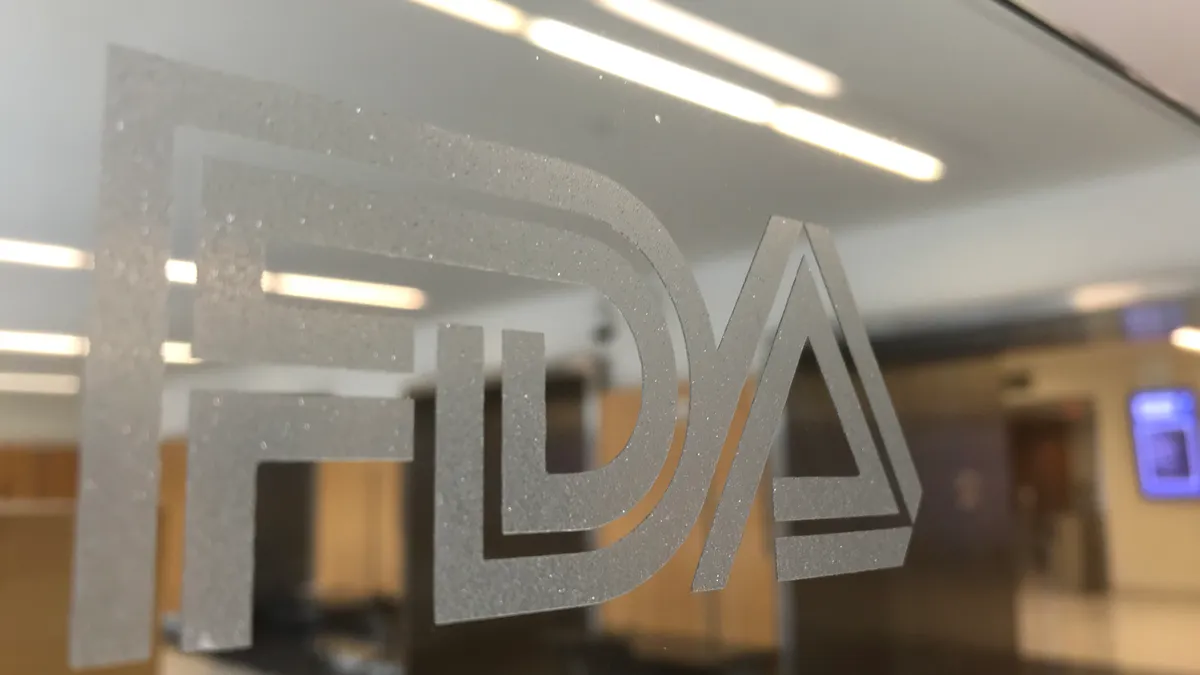Dive Brief:
-
FDA has alerted clinical laboratory staff and healthcare providers about the impact of the U.K. coronavirus variant and other emerging forms of the virus on the results of certain PCR tests.
-
Diagnostics made by Applied DNA Sciences, Mesa Biotech and Thermo Fisher Scientific may be affected by the variants but FDA said “the impact does not appear to be significant.” In fact, the tests may help to spot areas in which a new, fast-spreading variant is prevalent.
-
The affected companies expressed confidence in the sensitivity of their tests. FDA is working with test developers to ensure the continued accuracy of the PCR tests against new strains.
Dive Insight:
Researchers have been tracking evolution of SARS-CoV-2 since the start of the pandemic but the work has risen in prominence in recent weeks as the B.1.1.7 variant has spread quickly across the U.K. Early evidence suggests the variant is more transmissible. Last week, FDA set out the likelihood of B.1.1.7 and other variants causing false negative results.
Thermo Fisher’s TaqPath and Applied DNA’s Linea test for the S-gene that is mutated in B.1.1.7.
FDA expects the tests to have significantly reduced sensitivity for one of their targets. However, there are reasons to think the overall sensitivity of the multi-target tests will be unaffected.
Three of the U.K.’s high-throughput national testing laboratories use TaqPath, enabling researchers to estimate the frequency of the variant based on the number of PCR positives that are negative for the S-gene. If a test is negative for the S-gene but positive for the other two TaqPath genes, it may be a case of B.1.1.7 infection. Variants other than B.1.1.7 can cause PCR positive, S-gene negative results. However, B.1.1.7 currently accounts for almost all PCR positive, S-gene negative results in the U.K.
The experience of the U.K. points to the potential for other countries to use S-gene dropout as a sign that the variant has taken root, enabling places with limited routine genomic surveillance to track its spread. FDA said TaqPath, which tests for three genomic regions, and Linea, which has two targets, may be able to help identify new variants in the U.S. and is recommending the sequencing of S-gene dropout samples.
PCR results have already been used in retrospective assessments of the spread of the variant. Late last year, researchers at Helix published a preprint paper on changes in S-gene dropout starting in early October. The percentage of S-gene dropouts increased throughout November and December, suggesting the variant may be more prevalent than it appears in CDC data.
FDA’s discussion of the sensitivity of Mesa’s test focuses on another variant. The agency said the impact of the change on Mesa’s test “does not appear to be significant.” Mesa expressed a similar view.
“Our internal analysis has shown that our assay will tolerate a patient sample having a genetic variant at position 28881 (GGG to AAC) and that it should not have an impact on clinical performance of our test. Furthermore, our rapid PCR SARS-CoV-2 assay has shown excellent concordance with leading lab based SARS-CoV-2 PCR assays in recent validation studies,” Mesa said in a statement.
However, the limitations section of Mesa’s instructions for use now states analytical studies of the mutation “have shown a potential reduced sensitivity may occur when viral concentrations are at or near the limit of detection of the assay.”
FDA is continuing to monitor the situation and the companies are taking action. Applied DNA CEO James Hayward said his team has “begun to develop new assays to detect specific mutations in the virus and to adapt our assay to address the virus' evolving state.”
Thermo Fisher is working with FDA on surveillance of the U.K. variant.












